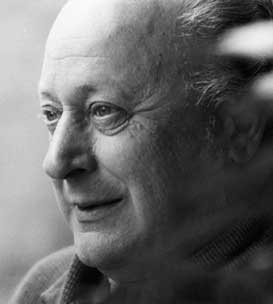|
Lucatello is now limiting his exhibitions to Friuli and Venice,
towards which he continues to ostentate irritation and removal.
The money is always fairly little, furthermore when he has any,
he spends it with bold indifference. He is glad to have so many
children, even when problems accumulate. He enjoys having them shouting
around him, above all sitting at meals or festivals which, unbeliever,
he insistes on observing and, as a good Venetian, feeling a bit
like a patriarch. He takes home his artist’s character which
is often close to irrational, provokes resentment and sudden flare–ups,
but he always maintains that wave of love that gains back love.

Evicted twice, finding a house with so many children is a problem,
and twice he has to move to nearby villages. But Lucatello loves
Tarcento too much and returns there, and protesting adapts to a
still more modest way of living.
In 1975 there is an important event: he has the chance to rent an
unused primary school in Vendoglio, a little village that breathes
quietly among gentle hills; one of those square buildungs erected
during fascism, with very high ceilings, to make a studio. At last
he can spread out his painting on huge canvases, as he has always
wanted. He is even able to fit out a saloon, with carpet and leather
armchairs, almost a real luxury, where he can take his finished
paintings and sit proudly and observe them, triumphantly drinking
a glass of red wine, discussing them with his dearest friends.
Here he paints his great “obstacles” which, suggested
in the fences that are so abundant in the country, then took precise
form in the social and psychological barriers that held back the
impetuous need of human remaking.
He paints too, almost a dark presage, a series of faces upset by
anguish and stifled screams.
|

